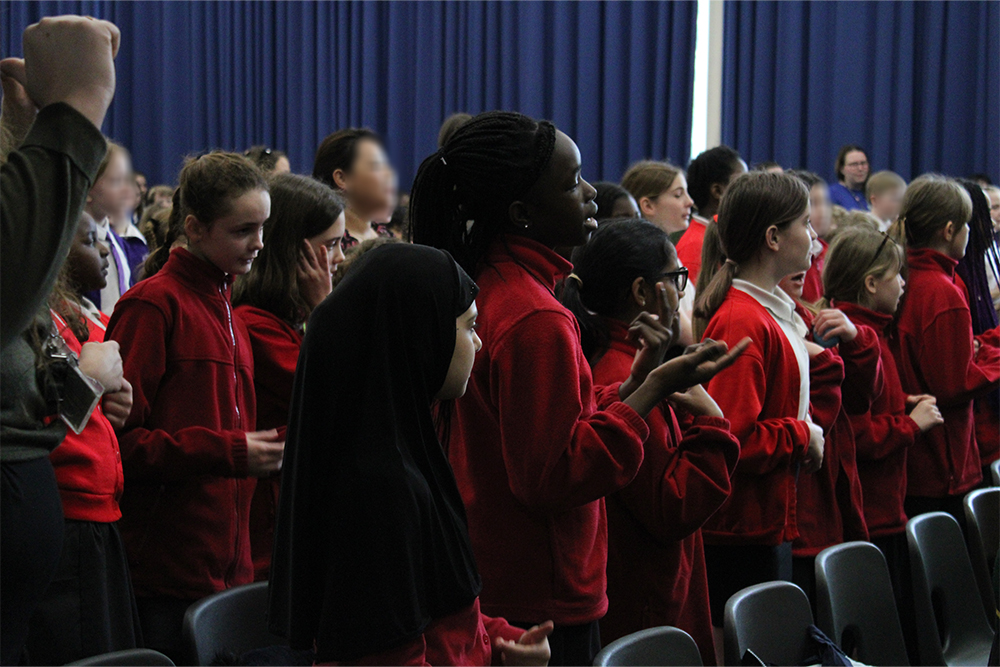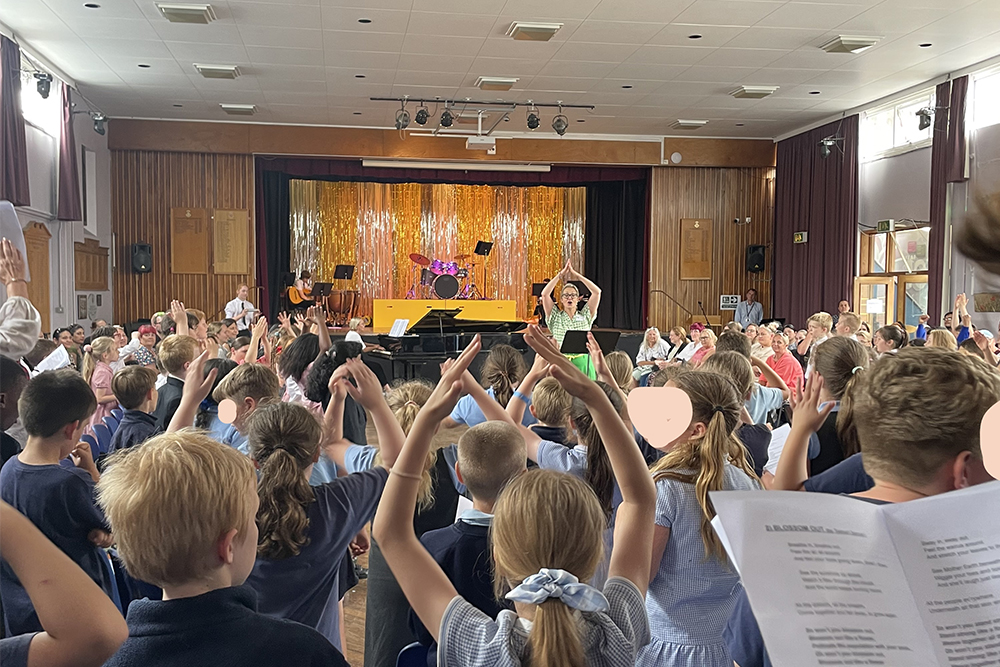
Singing in School
We believe that singing is an essential part of developing musicianship and encourage all educators to consider the role singing plays in a young person’s musical journey.
Since the Covid pandemic, we at Kent Music have noticed more conversations with schools about the challenges in getting children and young people to sing again. We have brought together some information on the role of singing in the school, how to improve singing in your school and guidance on creating a singing strategy.

The benefits of singing
As highlighted in the Model Music Curriculum and National Plan for Music Education, singing is an essential part of the music curriculum for all ages and can also support pupil development and a range of transferable skills.
With regular singing comes several physical, psychological and social benefits including improving the efficiency of the cardiovascular system, development of fine and gross motor control in the vocal system, enhanced social inclusion and interpersonal communication skills and more.
It has been proven that children who participate in musical activities and singing regularly perform better in subjects such as English, Maths and Science and studies have also shown that pupils who engage in musical activities have improved self-confidence and are able to express themselves
How to improve singing in schools
- Develop a whole school approach to singing where all staff are on board and aware of the importance of singing
- Include singing in your Music Development Plan
- Ensure there are regular opportunities for singing, little and often is the best approach!
- Get help! There are many organisations out there to help schools, get in touch and get going!
Music Development Plan
If you are looking for support with raising the quality or profile of singing in your school, why not use our Music Development Plan proforma to evaluate your current provision and make a plan for the future? Below are some helpful suggestions on what you may wish to focus on!
Focus areas
A good starting point is to think about your long-term vision for singing in school and make these your aims. Once you have decided your aims set yourself a timeline to achieve them and off you go! Below are some examples:
- Run regular singing assemblies allowing students to sing as a whole school/in key stages/ within a community setting
- All staff are confident using their voices in lessons and in singing assemblies
- Singing will be used regularly in curriculum lessons to support the delivery of the music curriculum
- We will have a choir/s open to all pupils run by a skilled musician providing the children with the opportunity to engage with high quality singing
- More boys will be singing as part of the whole school choir
- Pupils will be provided the opportunity to sing in a range of styles and genres throughout the academic year
- The school will provide opportunities for students to showcase their singing as an ensemble and soloist throughout the year